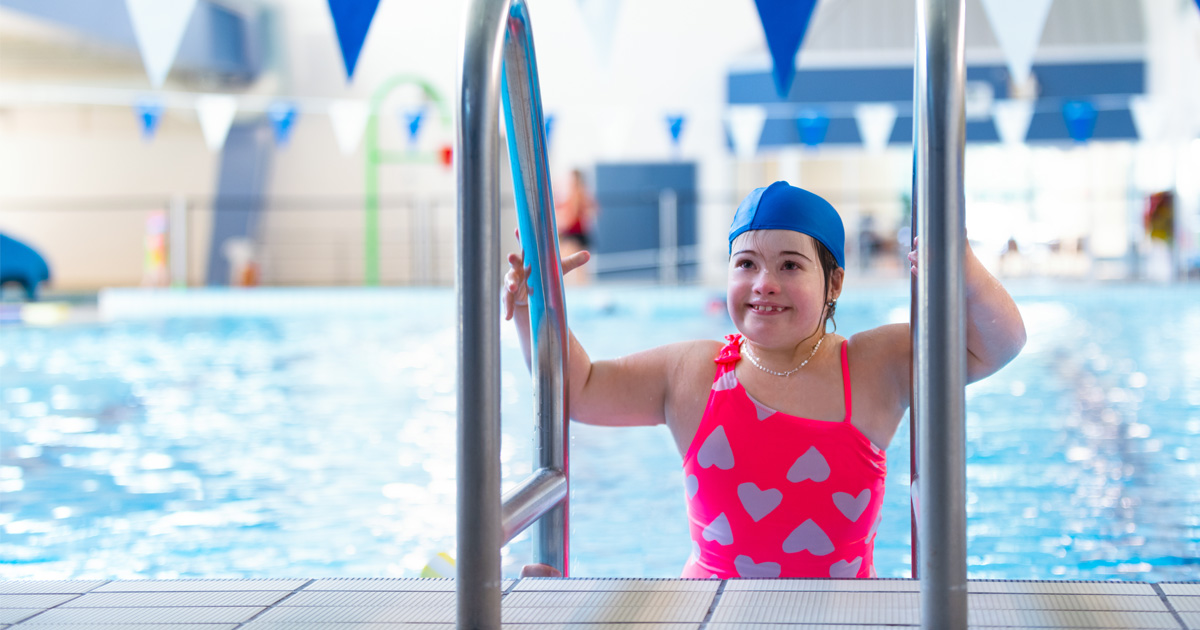Can Health, Wellness and Fitness Interventions Help Reduce Health Disparities for People with Intellectual Disabilities?
Altarum examines this question in an evaluation for Special Olympics.
January 19, 2021

Research has consistently shown that people with intellectual disabilities experience poorer health outcomes compared to the general population. They also often face significant challenges in accessing quality health care and have limited opportunities to engage in community activities that promote fitness and wellness. What can we do to address this persistent disparity?
Altarum is conducting a multi-site evaluation and providing technical assistance to local Special Olympics’ Health and Lifestyle Intervention programs. The programs aim to reduce health disparities through health, wellness, and fitness interventions focused on nutrition, hydration, physical activity, and social and emotional wellness.
With support from the U.S. Centers for Disease Control and Prevention, Special Olympics programs in six states (Arizona, Kansas, Louisiana, Michigan, Texas, and Wisconsin) will administer the interventions for eight weeks.
The programs will collect data from approximately 150 athletes participating in interventions and 100 who are not (the control group). They will gather data immediately before and after the interventions and within one to two months after the program's conclusion. All athletes participating in the program are doing so voluntarily—their participation is not required to access Special Olympics programming.
To ensure the research's fidelity, Altarum will examine whether the program was administered and data were collected according to the program design.
The demographic data and health metrics we will examine include race, gender, age, height, weight, waist circumference, capacity for push-ups and curl-ups, standing leg balance, and a 3-minute step exercise. We’ll also examine metrics to evaluate diet and social and emotional well-being.
Since this intervention will be administered virtually due to Covid-19, Altarum also will examine the effectiveness of virtual interventions for people with intellectual disabilities. Program administrators will report to us their feedback and feedback from participants about the strengths and challenges of participating in a virtual health, wellness, and fitness program.
Our findings will have implications for the future design of health, wellness, and fitness programming for people with intellectual disabilities, providing a model to help address health disparities. We will share the findings later this year. If you are interested in being among the first to receive them, sign up for our newsletter.
Altarum is a nonprofit organization that works with federal and state agencies and foundations to design and implement solutions to improve the health of individuals with fewer financial resources and populations disenfranchised by the health care system. We achieve measurable results by combining our expertise in public health and health care delivery with technology, workforce training and continuing education, applied research, and technical assistance. Our innovative solutions lead to better health for beneficiaries and better value for payers.
View Related
New Research in "Preventing Chronic Disease" Evaluates Distribution Model to Increase Access to Affordable Fruits and VegetablesAltarum Announces Dr. LaQuandra Nesbitt as New Board of Trustees Member
HRSA's MCHB Selects Altarum to Lead Strategic Support Services for the Regional Pediatric Pandemic Network
